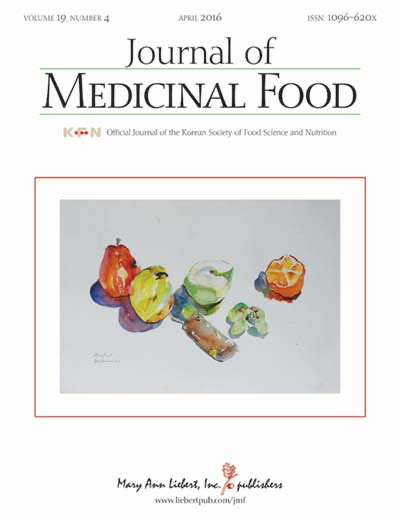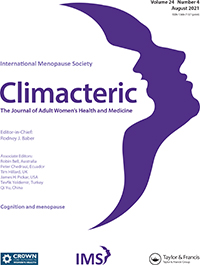Fish Oils
How to submit an article:
- Registered users can submit any published journal article that has a unique DOI (Digital Object Identifier) name or link to Research Hub.
- For example, you can paste the full DOI link:
https://doi.org/10.1109/5.771073or just the DOI name:10.1109/5.771073into the field above and click submit. - The person who is first to submit a valid article to Research Hub will forever be credited for it, and every article submission earns you +6 Research Points.
Published research studies are articles that present the findings of original research that has undergone a peer-review process and has been made publicly available in scholarly journals, books or other media.

Fish Consumption and Risk of Rheumatoid Arthritis: Findings from the E3N Cohort Study
2022 Feb 18 Nutrients Nguyen Y, Salliot C, Mariette X, Boutron-Ruault MC, Seror R
Cohort Study Omega-3 Fatty Acids Fish OilsModerate consumption of fish, particularly oily fish, may decrease rheumatoid arthritis risk, potentially countering the increased risk induced by smoking.

Influence of Omega-3 Fatty Acid-Rich Fish Oils on Hyperlipidemia: Effect of Eel, Sardine, Trout, and Cod Oils on Hyperlipidemic Mice
2021 Jul 01 Journal of Medicinal Food Kontostathi M, Isou S, Mostratos D, Vasdekis V, Demertzis N, Kourounakis A, et al.
Animal Study Cholesterol Cardiovascular Disease Digestive Health Eel Trout SardineOmega-3 fatty acids found in selected fish oils, particularly smoked eel, effectively managed dyslipidemia and reduced cardiovascular disease risk factors.

Severity of hot flushes is inversely associated with dietary intake of vitamin B6 and oily fish
2019 May 20 Climacteric Odai T, Terauchi M, Hirose A, Kato K, Akiyoshi M, Miyasaka N
After analyzing data from 262 women and adjusting for relevant factors, the severity of HF was found to have a significant inverse relationship with vitamin B6 (VB6) intake (adjusted odds ratio per 10 μg/MJ in VB6 intake, 0.92; 95% confidence interval, 0.86–0.97). Additionally, the consumption of oily fish as a source of VB6 was inversely associated with the severity of HF, suggesting that increased VB6 intake may help attenuate hot flushes in middle-aged women.
Clinical Study Vitamin B6 Hot Flushes Fish OilsAssociation of fish intake and smoking with risk of rheumatoid arthritis and age of onset: a prospective cohort study
2019 Jan 05 BMC Musculoskeletal Disorders Sparks JA, O’Reilly J, Barbhaiya M, Tedeschi SK, Malspeis S, Lu B, et al.
Cohort Study Fish OilsFish intake does not majorly impact overall rheumatoid arthritis risk but can lessen the association of smoking for rheumatoid arthritis diagnosed under 55 years of age.
Research insights are moderated by the Research Hub team and offer an at-a-glance overview of interesting research findings.

2022 Nutrients
Moderate consumption of fish, particularly oily fish, may decrease rheumatoid arthritis risk, potentially countering the increased risk induced by smoking.
Cohort Study Omega-3 Fatty Acids
Fish Consumption and Risk of Rheumatoid Arthritis: Findings from the E3N Cohort Study
Nguyen Y, Salliot C, Mariette X, Boutron-Ruault MC, Seror R

2021 Journal of Medicinal Food
Omega-3 fatty acids found in selected fish oils, particularly smoked eel, effectively managed dyslipidemia and reduced cardiovascular disease risk factors.
Animal Study Cardiovascular Disease Cholesterol Digestive Health Eel Sardine
Influence of Omega-3 Fatty Acid-Rich Fish Oils on Hyperlipidemia: Effect of Eel, Sardine, Trout, and Cod Oils on Hyperlipidemic Mice
Kontostathi M, Isou S, Mostratos D, Vasdekis V, Demertzis N, Kourounakis A, et al.
2019 BMC Musculoskeletal Disorders
Fish intake does not majorly impact overall rheumatoid arthritis risk but can lessen the association of smoking for rheumatoid arthritis diagnosed under 55 years of age.
Cohort Study
Association of fish intake and smoking with risk of rheumatoid arthritis and age of onset: a prospective cohort study
Sparks JA, O’Reilly J, Barbhaiya M, Tedeschi SK, Malspeis S, Lu B, et al.
Review Articles
Review articles summarise and critically evaluate the current state of research on a specific topic or field by synthesising multiple primary research studies.
Clinical Trials
Clinical trials are research studies that involve people and are conducted to evaluate the safety and efficacy of new treatments or interventions, such as drugs, medical devices, or behavioural therapies.
Study Protocols
Published study protocols are detailed plans that outline the objectives, methodology, statistical analyses, and organisation of a research study that have been made publicly available for others to review and use as a reference.
Presentation Slides

Cohort Study
Moderate consumption of fish, particularly oily fish, may decrease rheumatoid arthritis risk, potentially countering the increased risk induced by smoking.
Nguyen Y, Salliot C, Mariette X, Boutron-Ruault MC, Seror R

Animal Study
Omega-3 fatty acids found in selected fish oils, particularly smoked eel, effectively managed dyslipidemia and reduced cardiovascular disease risk factors.
Kontostathi M, Isou S, Mostratos D, Vasdekis V, Demertzis N, Kourounakis A, Vitsos A, Kyriazi M, Melissos D, Tsitouris C, Karalis E, Klamarias L, Dania F, Papaioannou GT, Roussis V, Polychronopoulos E, Anastassopoulou J, Theophanides T, Rallis MC, Black H

Cohort Study
Fish intake does not majorly impact overall rheumatoid arthritis risk but can lessen the association of smoking for rheumatoid arthritis diagnosed under 55 years of age.
Sparks JA, O’Reilly J, Barbhaiya M, Tedeschi SK, Malspeis S, Lu B, Willett WC, Costenbader KH, Karlson EW
Executive Summary
Write an executive summary in the form of a blog article on the topic of "Research into Chinese medicine treatment for Fish Oils" summarising the research below and using language that can be easily understood by patients and avoiding medical jargon using a professional and caring tone of voice.
Write an executive summary in the form of a blog article on the topic of "Researched Chinese medicine treatments for Fish Oils" summarising the research below in an objective and easy to understand way, and using language that can be easily understood by patients. Group the article into Chinese medicine treatments first, followed by nutrition and other treatments. Avoid using medical jargon and use a professional and caring tone of voice.
Write me a concise but easy to understand executive summary on the topic of "Chinese medicine treatments for Fish Oils" based on the following research that I will give you. Your summary should be 2 paragraphs long in Australian English spelling and include references to the studies.
A Cohort Study published in 2022 in the journal Nutrients found that Moderate consumption of fish, particularly oily fish, may decrease rheumatoid arthritis risk, potentially countering the increased risk induced by smoking. The research was carried out within the E3N Study, a French prospective cohort study involving 98,995 women from 1990. Within this group, the diet of the subjects was assessed via validated food frequency questionnaires gathered in 1993. Utilising the colossal amount of data collected, a statistical method known as Cox proportional hazards models were implemented to identify potential relationships between incident rheumatoid arthritis, various types and amounts of fish consumption, and other potential risk factors such as smoking and age. Looking at the discussion of results, the study unearthed some fascinating links. Starting off, no linear association between general fish consumption and rheumatoid arthritis risk existed. Nevertheless, moderate consumption of fish was found to have a protective effect, reducing likelihood of developing rheumatoid arthritis. Digging deeper, this protection was especially pronounced in current or former smokers. Interestingly, this favorable association seemed to be stronger when it came to consumption of oily fish, thanks to its high omega-3 fatty acid content. Conversely, lean fish consumption did not display the same level of correlation. The proposed theory is the protective influence is likely due to the omega-3 fatty acid content prevalent in oily fish.
A Animal Study published in 2021 in the journal Journal of Medicinal Food found that Omega-3 fatty acids found in selected fish oils, particularly smoked eel, effectively managed dyslipidemia and reduced cardiovascular disease risk factors. The study began by inducing dyslipidemia through a high fat diet in a mouse model. After 30 days of this diet, all animals displayed hyperlipidemia. Subsequently, the diet was switched to consist of 90% standard rodent chow and 10% oil derived from different fish varieties (eel, sardine, cod liver, trout). This diet was maintained for the next 60 days. Blood glucose, total blood cholesterol, triglycerides, and high-density lipoprotein were quantified at the end of the study period. Additionally, the fish oils' omega-3 and omega-6 fatty acid percentages and ratio were taken into account by using gas chromatography. The results showed that incorporating fish oils in the diet considerably improved the hyperlipidemic state triggered by the high-fat diet. Specifically, eel and cod liver oil diets led to significant decreases in triglycerides. Meanwhile, all diets, apart from the standard rodent chow and sardine, resulted in noticeable decreases in blood glucose. Interestingly, smoked eel stood out as the best source for omega-3 fatty acids due to its optimal balance of omega-6 fatty acids, excellently alleviating the mixed hyperlipidemia induced by the high-fat diet.
A Cohort Study published in 2019 in the journal BMC Musculoskeletal Disorders found that Fish intake does not majorly impact overall rheumatoid arthritis risk but can lessen the association of smoking for rheumatoid arthritis diagnosed under 55 years of age. In this study, we evaluated fish intake and its potential impact on rheumatoid arthritis (RA) risk in a sample of 166,013 women, utilizing data from two prospective cohorts, the Nurses' Health Study spanning 1984-2014, and the Nurses' Health Study II spanning 1991-2015. We assessed fish intake using food frequency questionnaires given at the start of the study and every four years following. We determined cases of RA and their serologic status by reviewing medical records. Subsequently, we applied a pooled Cox regression model to estimate hazard ratios for RA relative to fish intake frequency. Additionally, we tested for any interactions between smoking and fish intake concerning RA risk. In the analysis of our results, during a combined follow-up period resulting in over 3.8 million person-years, we documented 1,080 incident RA cases. Interestingly, we found no significant association between higher fish intake and a reduced risk of RA, whether seropositive or seronegative. However, we observed an elevated risk of RA specifically in cases diagnosed after 55 years of age with an increase in fish intake. In contrast, among women 55 years old or younger, frequent fish intake compared to infrequent consumption was generally associated with a reduced risk of RA. Furthermore, our results indicated that ever-smokers with infrequent fish intake exhibited a significantly higher risk of RA diagnosed 55 years or younger. However, this risk was more modest among ever-smokers with frequent fish intake.
Moderation Tools
Topic
Sign In
Users not signed in are limited to viewing the 5 most recent items of content.